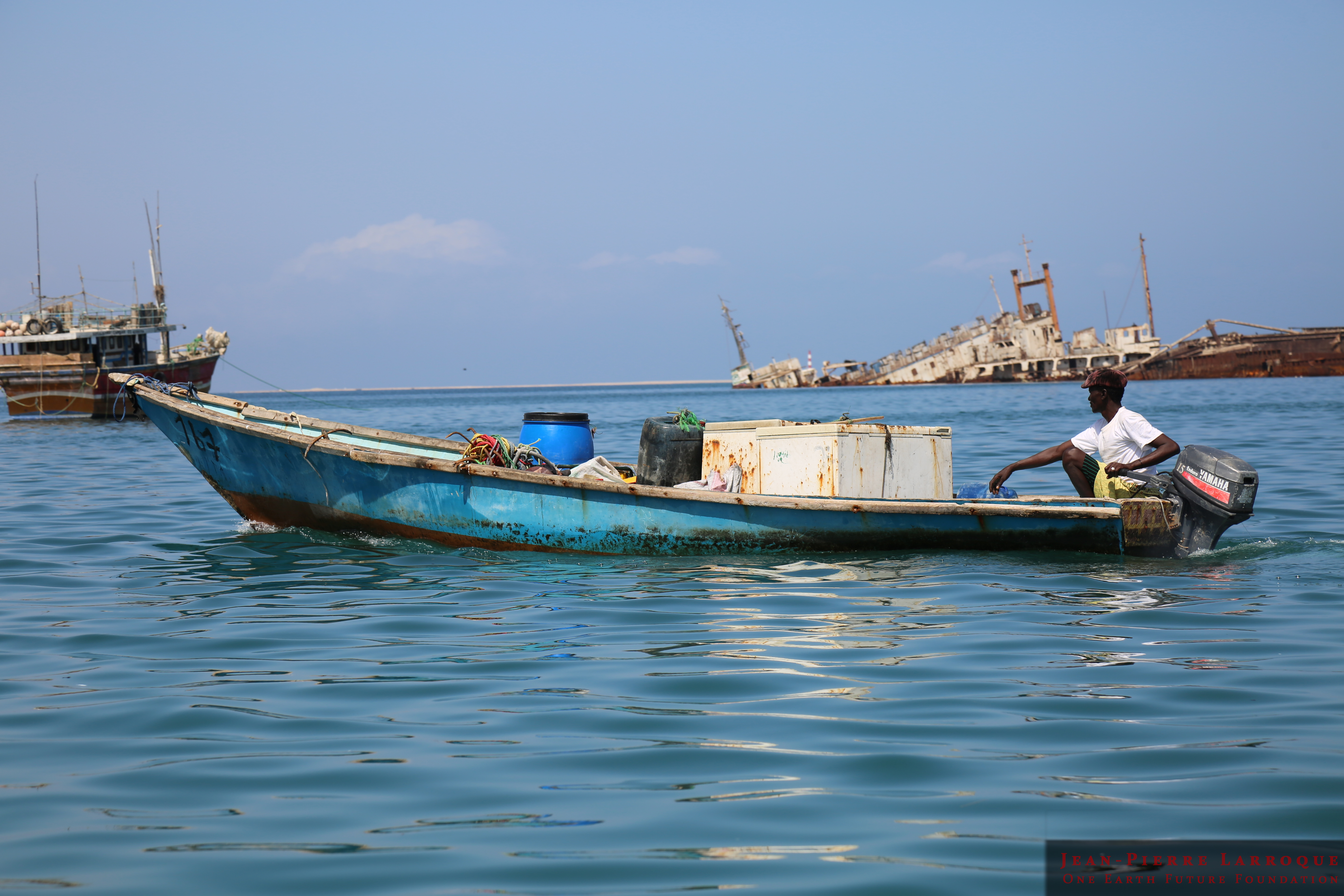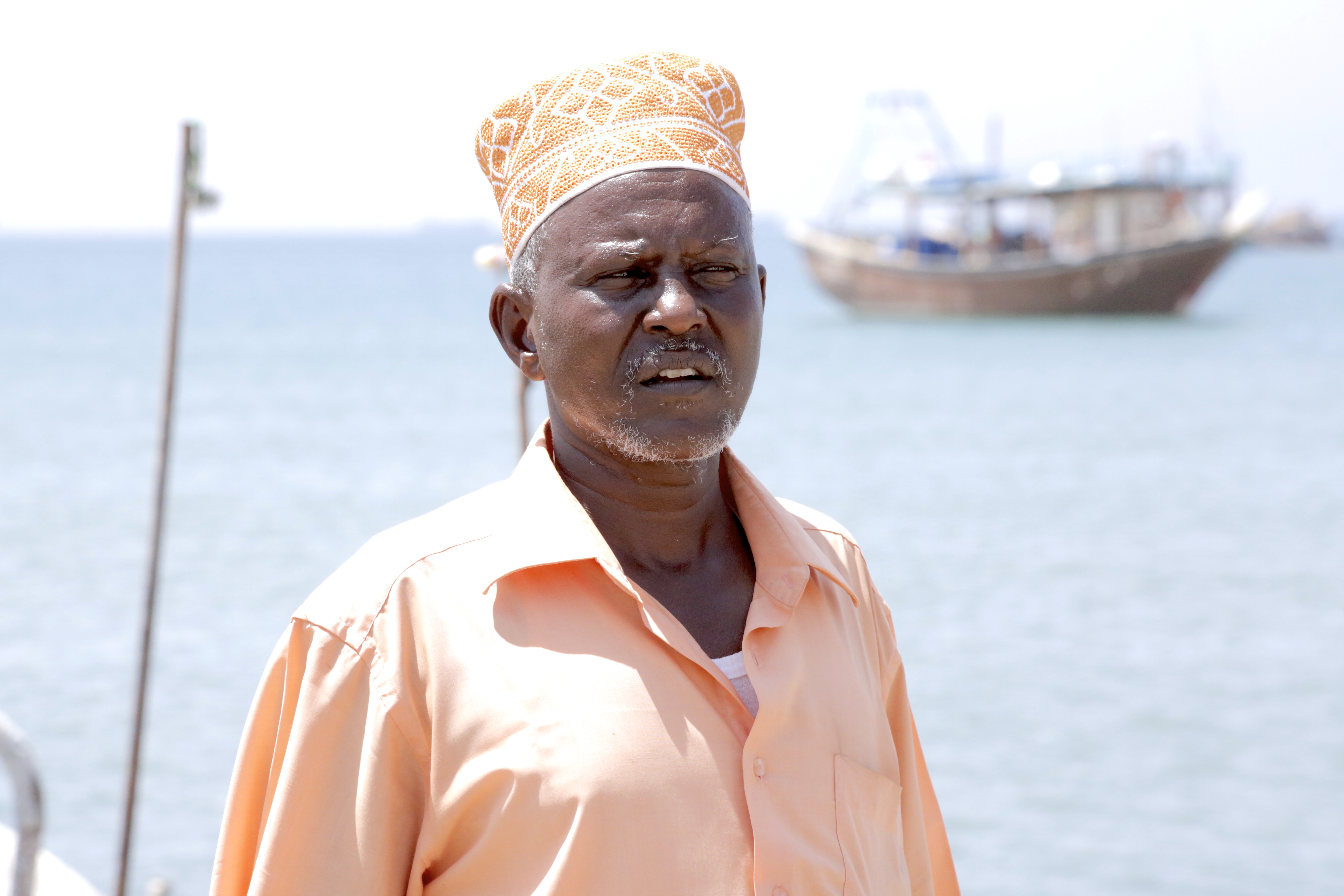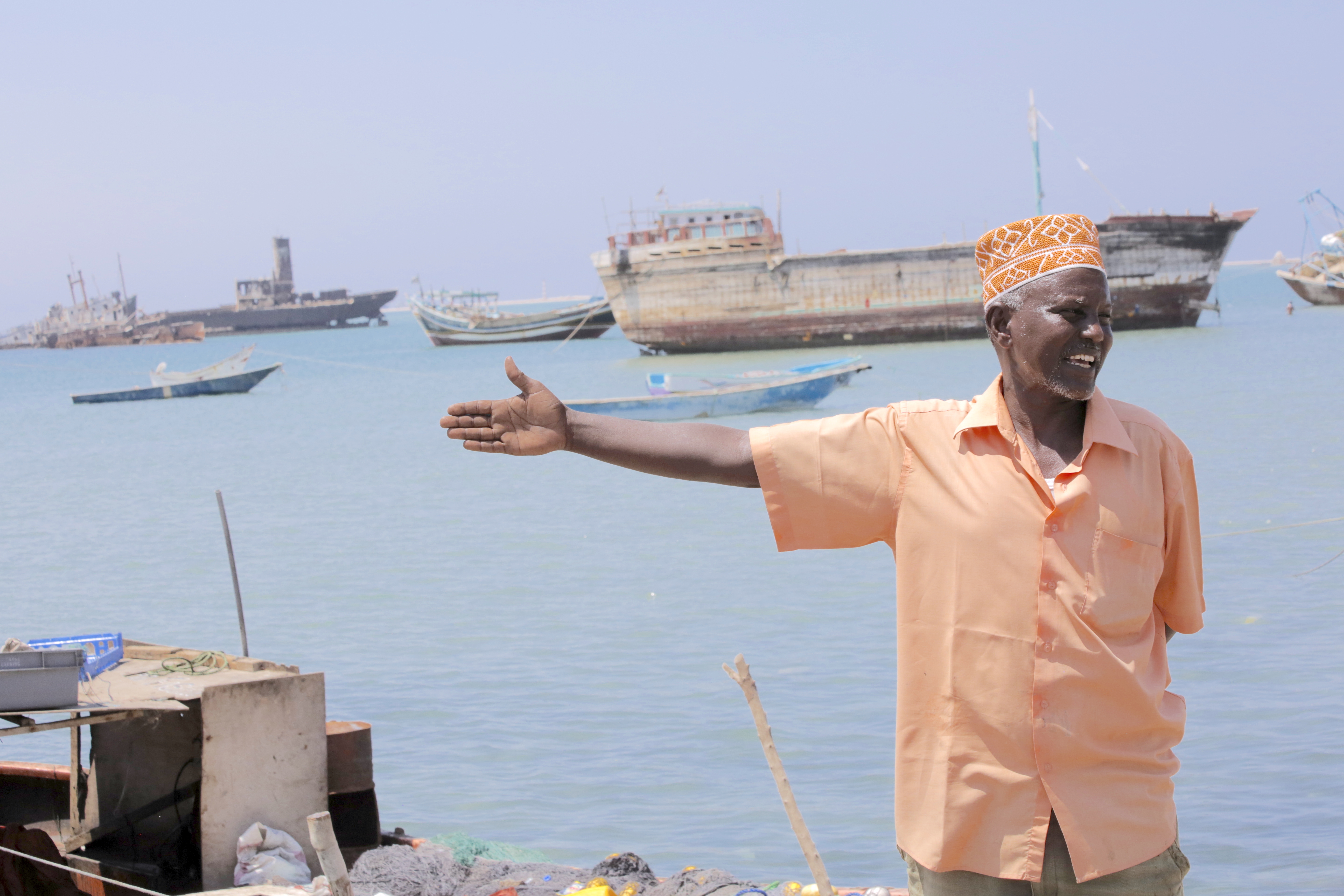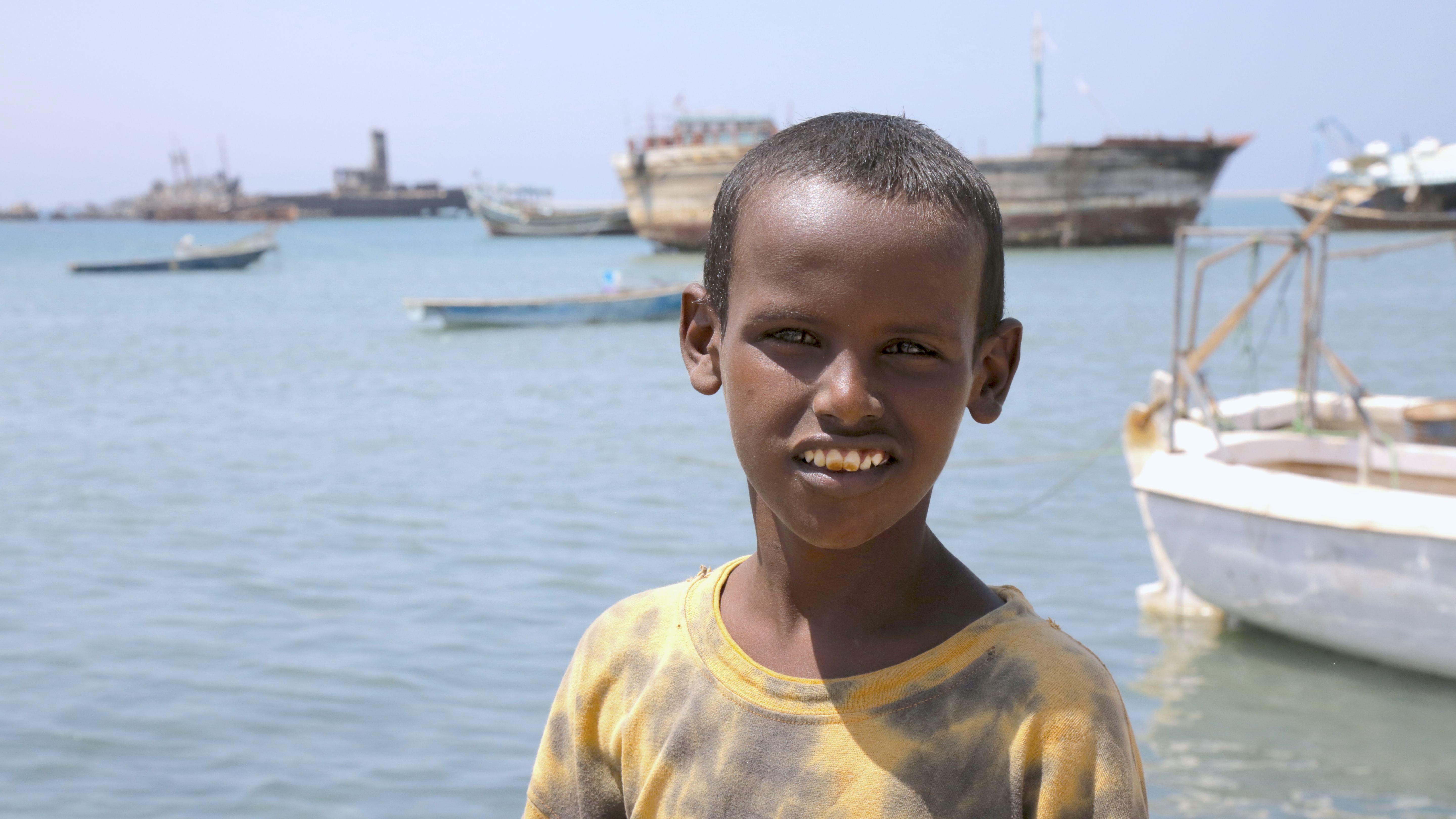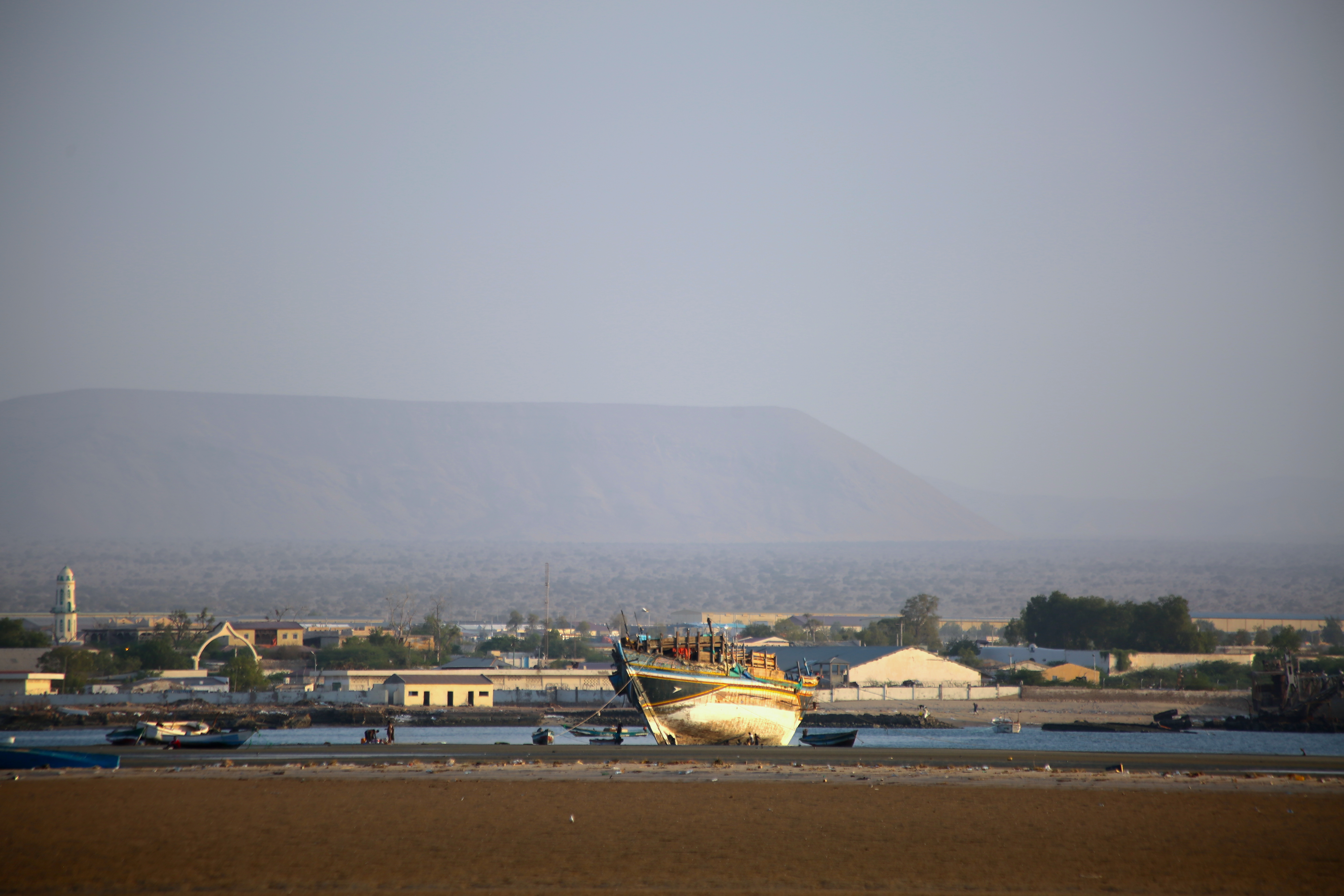Remembering my trip to Berbera in 2016. Names have been changed to protect the innocent.
It was late by the time we made it through security and to the front desk of the Mansoor Berbera. The heat was unbearable and everyone was advised to keep the door of the small lobby closed to preserve the air conditioner.
A pop-up banner advertising tourism activities flanked the desk. On it stretched a photo of a gleeful dolphin and text in a fun font that read:
Rest in Peace.
As the hotel staff painstakingly transcribed all the identifiable information from our passports into registration forms, Donny mumbled wistfully about scuba. When the banner caught his eye he fell silent.
After we filled out long questionnaires about our business in Berbera, bellhops led us to our bungalows. Inside I was shown how to work the television and the air conditioning which ended up not working. The porter left then later returned to fix it. He determined the air conditioner wasn’t fixable and after some back and forth I was moved to another room. The A/C unit in my new accomodation blew out air with a mighty arctic blast. This unit was broken too; it could not be turned off. On was better than off so I tried to make myself at home. I looked for extra blankets in the closet but all I could find was a spare prayer rug.
The sand got into the room no matter how hard you tried to keep it out. Whenever it tracked across the bungelow’s faux-marble porch, a group of silent housekeepers appeared to dust the grains off. Being close to the Gulf, the TV channels in Berbera were even more conservative than Hargeisa and heavy on religious programming. Mostly, it was satellite broadcasts of Mecca where overhead CCTV cameras captured sheiks and veiled women making their way through grand hallways to the call to prayer.
The restaurant stayed open late, albeit the service was lethargic. Everyone ordered fish and tough, indecipherable filets eventually came out of the kitchen with rice, shigney pepper sauce, and fresh fruit smoothies that barely quenched one’s thirst in the coastal heat. Amit, Donny, and I stocked up on water bottles; some to drink at the table and more to last us through the night in our rooms. Then, exhausted by our travel and in anticipation of our early start time, we made our way to our beds.
In the morning, refreshed by the breeze of the unrelenting air conditioner I met everyone back at the restaurant for breakfast. It was early so it was just us three and the waitstaff who casually took their time bringing us thin omelets, Somali pancakes, drab coffee, and more fruit cocktails.
Then, all of a sudden, Amit got the call from Mo’. The day was getting late in the fishing world and he was coming to pick us up for the first interview. There was an urgent yell to the waiters to bring the check. In the dash back to my room. Kicking sand on the porch, I grabbed my equipment, went to the bathroom, and chugged some water before running out to Mo’, who had already grown impatient and pulled his SUV up to my bungalow.
We drove down sleepy morning streets that meandered narrowly through compact settlements along the harbor. You can tell the fishing companies apart from other businesses in towns because of the colorful cartoon murals advertising their wares.
We hopped out of Mo’s SUV. I was a little nervous. All eyes on the street gazed upon us and my camera, but everyone we passed seemed friendly enough, even the gang of teenagers on the skinny curb leading into the fish shop.
Of course, the two soldiers who patrolled directly behind us may have added to the amiable vibe we encountered.
This was in contrast to the last time I was in Hargeisa. Mo’ waited on the street while Amit and I filmed a farmer bringing her wares to market. No guards accompanied us on that visit. The women who worked the stalls were so upset at the presence of an American with a camera that a group of them surrounded me and yelled at me. Then out of nowhere I felt a jab at my back. A teenager sucker-punched me. I almost lost my temper and would have lashed back at him, but realized that would make things worse so I just tried to stay cool. Then the farmer we were filming, a big woman, rushed into the mob and beat the living daylights out of my antagonists. They were her employees and they were ruining her movie.
That was Hargeisa. In Berbera, with the guards close-by things were fine. While there was violence here; a slew of recent assassinations at the naval base, that was internal corruption as far as I could tell and not the ‘bab.
Mostly it was just hot. Even at 7:30 in the morning it was in the high 90s and the temperature would only go up as the day went on.
The first fisherman, a towering man with a long beard, equally long white robe, and a skull cap, was someone I had met several times previously. I never could catch his name but we always got along in a cordial way. He had a short window before he needed to attend to his fleet of old sedans packed with fish destined for Hargeisa.
A fan club of young boys gathered at the shop’s entrance to watch the video shoot. Flies flew in through the shop’s glassless windows from the street and pelted our faces as we talked about preserving his catch and how he used the Foundation’s loan to invest in cold storage. The interior stank of fish even thought the product was hygienically stored in a series of deep freezers until it was time to take them to Hargeisa. Inside each of them was a treasure trove of fruites de mer; a frostbitten aquarium, a still life in the middle of the desert.
I asked a question about pirates and was met with a gramice that ended the interview. We bowed to each other with a warm farewell. Then I hastily packed up the equipment and made my exit from the shop.
Next, our crew went into A- A- Fishing and met J- , a middle aged man in a polo shirt. A- A- is a family business, J-‘s pregnant daughter posed with a couple of skip jacks for a photoshoot I did at his shop two years earlier. It was about as hot then as it was on this day. J-‘s daughter wasn’t around, but his son was. Last time I saw him he was showing off a giant desktop computer that J- spent the loan from the Foundation on. He was beaming in the photos I took of the CPU to document the transaction took place. He looked like he did back then, just a little older.
The same could be said about J-‘s place. Dark, hot, ancient; strings of nets we piled up into mountains. We were ushered into a backroom illuminated by an impromptu skylight; a piece of roof had collapsed near the back of the building. I asked Amit to use the light disk we brought. He popped it out’s sleeve and bounced sunlight from the hole in the ceiling onto J-‘s face. We were all sweating, including J- even though he was a local. Maybe he was just nervous about being on camera.
The red dot blinked to indicate we were recording so I started talking. I would ask a question in English, Amit would translate into Somali, J- would give an answer, and Amit would gave the gist of it back to me in English. This exchange would haunt me for months while I edited the video back in the United States and obsessed over the subtitling. J- spoke about how nice the Foundation was for giving A- A- a small business loan and how it allowed him to expand his fleet. I asked him about the day in the life of a Somali fisherman. He told me about how he gets up early to prepare his nets then his answer segued into the challenges his industry faced.
Somalis have an undeserved reputation for being pirates, especially since the Tom Hanks film, Captain Phillips, recently released at the time of this story. J- told me the real criminals were illegal fishermen, traveling to the Gulf of Aden from places like China, Iran, and Spain to poach the locals’ catch. They sabotaged his nets and threatened the fledgling industry with violence. Somaliland has claimed territorial waters but they are effectively lawless since the region is not formally recognized as a country by the international community. Its meager coast guard does not have the capacity to adequately protect its claims.
With all of my recording equipment whirring, the shop’s work lights shining, and the light disc directing in the sun, the temperature in the room rose to a point where my video camera overheated and turned off. In a sweat I replaced the battery to bring us back up momentarily. It was just enough juice to wrap the interview. After some pleasantries we parted ways with J-.
Outside, the kids from the first shoot had been joined by a gang of teens and other gawkers. They approached us on the street and I tried to be inconspicuous with my telephoto lens. Mo’ pulled around.The serikalis jumped out of his SUV. The youths waved friendly greetings and a corner down the street.
It was 9:45 AM when we returned to Mansoor Berbera. The heat, the concentration on the job at hand, and the cross-culture sensitivities left me exhausted.
I used the excuse of uploading my camera’s S.D. card to the Web to go back to my room. It was frigid, and the A/C was impossible to turn off. Mecca was still blasting on the TV. I slipped the card into the reader of my computer and started the transfer. I half-heartedly started charging batteries until I was overcome with drowsiness .
All of a sudden it was after 11. I scrambled to wake up. I texted Amit, grabbed my equipment, and waited with an air of impatience in the lobby.
Donny showed up at the front desk to inquire about scuba diving, then talked himself out of it.
He decided to join Amit and me instead.
Amit showed up talking loudly in Somali over the phone to our bodyguards as well as to J-’s fisherman. He urged them to hurry up. I heard a fisherman yelling over the noise of the surf. Amit hung up and told us the fisherman was slowing down his boat. He was triangulating the perfect spot off the coast where we could intercept them on their way back from pulling their nets.
The serikali arrived from their barracks. We all piled into Mo’s SUV and took off down the road that straddled the harbor, then the town, and then the open space of the beach; a tarmac path between the desert and the ocean.

